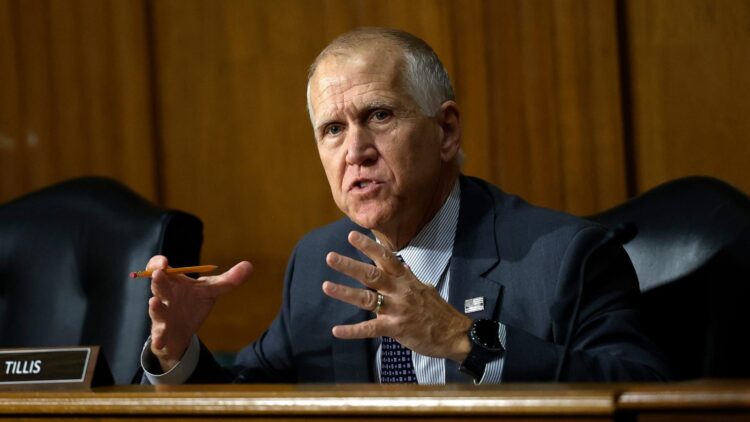Quick Breakdown
- Tillis warns Congress must pass crypto laws by early 2025 before election politics slow progress.
- Government shutdown and House delays have stalled bills like the CLARITY Act.
- CFTC leadership change looms as Michael Selig awaits Senate confirmation.
Tillis urges swift action on crypto legislation
North Carolina Senator Thom Tillis has cautioned that the U.S. Congress is running out of time to advance digital asset legislation before election-year politics derail progress. Speaking to Bloomberg on Monday, the Republican lawmaker and member of the Senate Banking Committee stressed that lawmakers have only a few months to act before focus shifts toward the 2026 midterm elections.

Tillis noted that Congress should prioritize crypto-related bills “by the first part of January, February” to ensure they are passed in the current session, which concludes in January 2027. However, he admitted he is “not optimistic” about significant movement on measures concerning digital assets, stablecoins, or broader crypto reforms.
Congressional gridlock deepens amid government shutdown
Tillis’s comments come as a government shutdown that began on October 1 continues to hinder legislative activity. The impasse stemmed from disagreements over healthcare funding and subsidy cuts. Among the affected proposals is the CLARITY Act, which cleared the House in July and was expected to form the foundation for a broader market structure framework in the Senate. Lawmakers had planned to build on the bill to create comprehensive crypto oversight, but progress has stalled amid the shutdown.
White House economic adviser Kevin Hassett hinted that the ongoing U.S. government shutdown could wrap up “sometime this week,” potentially clearing the path for long-delayed crypto regulatory initiatives.
Senate still eyes broader crypto framework
Senator Cynthia Lummis, another key Republican voice on the Senate Banking Committee, previously stated that the chamber’s version of the market structure legislation—the Responsible Financial Innovation Act—could be enacted by 2026. However, continued political gridlock threatens that timeline.
Adding to the uncertainty, U.S. President Donald Trump recently nominated Michael Selig, a current official at the Securities and Exchange Commission (SEC), to serve as chair of the Commodity Futures Trading Commission (CFTC). The CFTC plays a central role in regulating digital assets, but Selig’s confirmation hearing had not yet appeared on the Senate calendar as of Monday.
If you would like to read more articles like this, visit DeFi Planet and follow us on Twitter, LinkedIn, Facebook, Instagram, and CoinMarketCap Community.
Take control of your crypto portfolio with MARKETS PRO, DeFi Planet’s suite of analytics tools.”





















